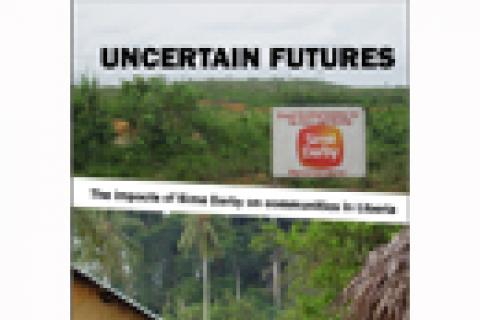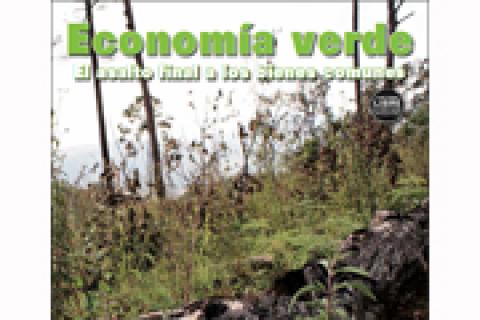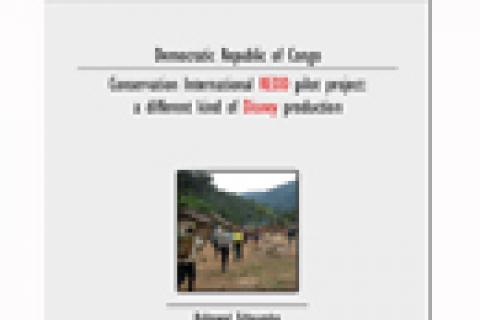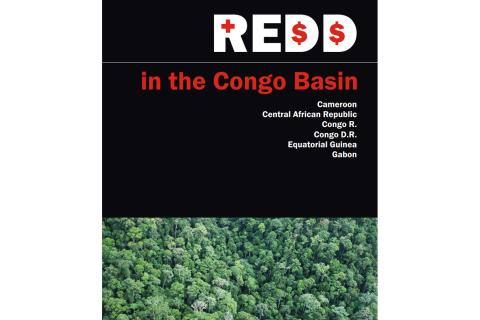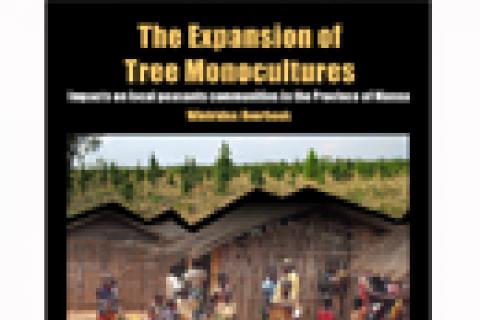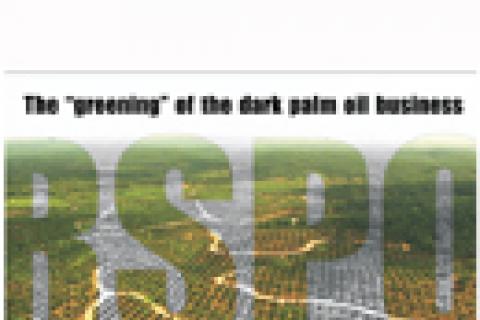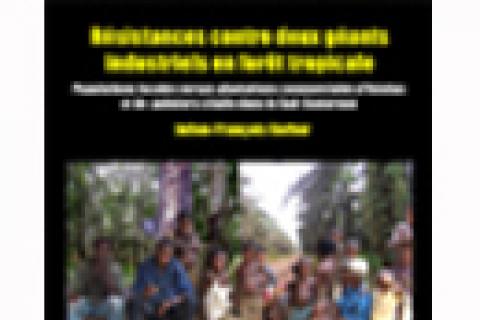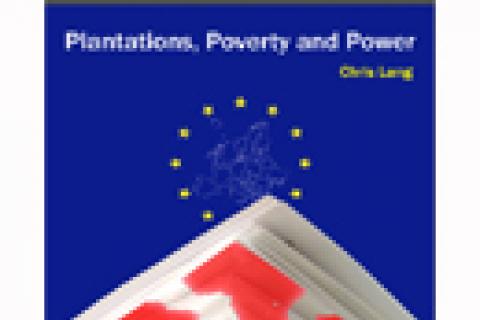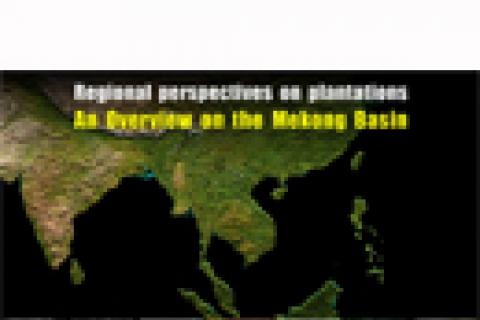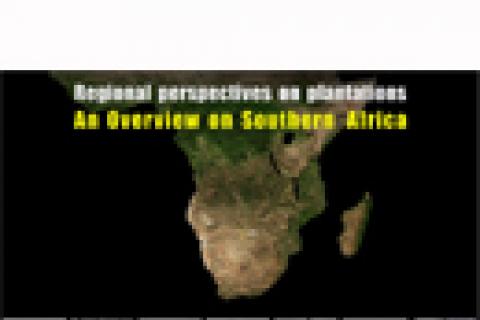By Silas Kpanan’Ayoung Siakor
Media Brief
Large-scale land grant to Sime Darby to grow oil palm in Liberia threatens the rights of local communities, their food security, and puts their wellbeing at risk.
Publications
Only available in Spanish
Por GRAIN, ATALC y el WRM
After many years of supporting local struggles and disseminating information from different countries on tree monocultures and its impacts, WRM presents a new report to all those involved in these struggle.
By Belmond Tchoumba
This report is based on the fi ndings of research conducted by WRM on the REDD pilot project being undertaken by Conservation International and the Walt Disney Company in the province of North Kivu in the Democratic Republic of Congo, specifi cally in the so-called community reserves of Tayna and Kisimba-Ikobo.
When we talk about “the definition of forest”, what is perhaps most striking is the fact that, although there are many definitions of the word “forest” in different parts of the world, there is one definition viewed as more official and international, to which many national governments, institutions and other bodies and organizations adhere. This is the definition of forest developed by FAO, the Food and Agriculture Organization of the United Nations.
The forest of the Congo Basin expands over an area of continuous tropical rainforest cover only second to that of the Amazon forest. Those forests are currently receiving a lot of attention within the Climate Change negotiations.
A field report, by Winfridus Overbeek.
This publication is the result of a visit to Mozambique in November 2009 by two activists involved in the struggle against tree monocultures in the Brazilian state of Espírito Santo. This visit was made possible by the World Rainforest Movement (WRM) with the goal of exchanging experiences about large-scale tree monocultures.
Over the past few decades, oil palm plantations have rapidly spread throughout Asia, Africa and Latin America, where millions of hectares have already been planted and millions more are planned for the next few years. These plantations are causing increasingly serious problems for local peoples and their environment, including social conflict and human rights violations.
(Only available in French)
Populations locales versus plantations commerciales d’hévéas et de palmiers à huile dans le Sud-Cameroun
By Julien-François Gerber
Résistances contre deux géants industriels en forêt tropicale
By Chris Lang
Eucalyptus, oil palm, rubber and jatropha monoculture plantations are expanding onto local communities’ lands and forests in the Mekong region’s countries. Promoted under the guise of development, poverty alleviation and even climate change mitigation, such plantations are resulting in severe social and environmental impacts.
Timber plantations in southern Africa are concentrated in South Africa, Zimbabwe and Swaziland, but they are also expanding in Mozambique. There are smaller areas in Angola, Zambia, Malawi and Tanzania. In South Africa, the largest areas are in the provinces of Mpumalanga, KwaZulu-Natal and the Eastern Cape, covering 1.5 million hectares of land. Additionally, an estimated 1.6 million hectares have been invaded by plantation species such as acacias (wattle), eucalyptus (gum) and pines.
